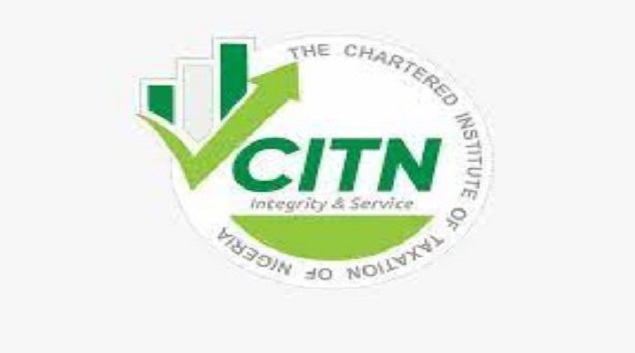E-Financial
SEC Taps Digital Platforms to Aid Financial Inclusion

Securities and Exchange Commission (SEC) has stated that it recognizes the importance of digital platforms for democratizing access to capital market products and services for greater financial inclusion in the capital market.

This was stated by Lamido Yuguda, director general, SEC, who was represented by Reginald Karawusa, executive commissioner, Legal and Enforcement, at a webinar organised by the Commission, with the theme: “Digital platforms: New Frontier for capital Market inclusion.”
Yuguda said: “As the apex regulator of the Nigerian capital market, with a dual mandate to regulate and develop the market we recognize that the greatest asset of any capital market and indeed any financial market is its investors.
“It is investors, whether retail or institutional, that provide the savings needed for productive investments.
“Inclusion of the excluded population is therefore critical for deepening a sustainable capital market.”
According to him, the Enhancing Financial Innovation and Access 2020 Report on the Nigerian “FinTech Landscape and Impact Assessment Study”, as at December 2018, showed about 40% of Nigerians were still financially excluded, with 51.1 per cent of the excluded population women, while 61.5% are between the ages of 18 and 35.
Also 34 per cent had no formal education and 80.4 per cent resided in rural areas.
This Yuguda said, means that 40 per cent of Nigerians who are financially excluded, especially those between the ages of 18 and 35, are also excluded from participation in the Nigerian capital market.
This low level of involvement in the market has spurred the Commission to intensify its investor education efforts to attract greater participation in the capital market by both existing and potential investors, he said.
The SEC boss asserted that the capital market, as part of the Fintech eco system, is witnessing changes in the conduct of market activities with the emergence of digital platforms which provide wide scale, cost effective and efficient solution for inclusion of potential investors in the capital market especially the younger population.
Yuguda said: “Since 2018, the Commission has been engaging stakeholders within this space to develop an efficient regulatory framework that will mandate responsible digital financial practices to protect investors or consumers.
“The discussions and insight from this webinar, therefore, will be instrumental in shaping the regulatory landscape for the operation of these platforms, as well as support our efforts in securing the mutual benefits from their emergence.”
He restated the Commission’s objectives, which are to build a modern, efficient and low cost market characterised by adequate product offerings, efficient processes and market integrity.
“We must do this continually by raising standards, embracing new technology, introducing new products, enhancing our processes, widening the investor-base, invigorating investor education and providing an enabling regulatory framework to support it all,” he added.
In his remarks, Edward Okolo, director Market Development Department at the SEC, said the topic for discussion is apt based on prevailing circumstances and global realities.
The importance of financial inclusion and digital platforms in such times when human interaction and business operations are limited cannot be overemphasised, Okolo said.
He added that global business thrives on digital products platforms and processes.
E-Financial
Nigerians Lose N4.8 Trillion to Scams Since 2016

Nigerians have lost N4.8 trillion ($2.99 billion) to various scams since 2016, according to findings by Paul Alaje, a prominent Nigerian economist and chief economist at SPM Professionals.

This is coming on the heels of the recent crash of Crypto Bridge Exchange (CBEX), a digital asset company, where over 600,000 investors lost N1.3 trillion.
With the collapse of CBEX, Alaje said that accounting for the depreciation of the naira, the actual figure is close to N8 trillion ($5 billion) since 2016.
CBEX, like all Ponzis and scams, was an investment fraud that pays existing investors with funds collected from new investors.
CBEX lured investors with promises of a 100% return on investment after 30 days.
Consistent with other scams, the early investors received the promised returns, attracting thousands more into what they thought was a legitimate platform.
Following the platform’s collapse, the Economic and Financial Crimes Commission (EFCC) has arrested two suspects believed to be among the operators.
A source from the economic crimes watchdog told a local outlet that five others, including two Nigerian siblings and a British citizen, are under probe for their involvement.
The EFCC is investigating who funded the firm, how it managed to evade regulatory scrutiny, and its legacy financial partners.
Emomotimi Agama, director general, Securities and Exchange Commission (SEC) said that CBEX wasn’t registered, limiting the agency’s ability to crack down on the company.
“The first responsibility of the SEC is to watch over regulated institutions within the confines of its available resources. Registration actually is the hallmark of regulation. Without registration, the possibility of regulation becomes difficult,”.
Agama further noted that no member of the public had made any reports regarding CBEX before it blew up, despite the company operating for nine months.
E-Financial
FG Rakes in N1.2 Trillion from Banks’ VAS

Nigeria’s banking sector, in 2024, thrived in a stormy economic climate, capitalising on market volatility to deliver record profits.

According to The Sun, nine of the country’s listed banking giants—Access Holdings, FCMB, Fidelity, First Bank Holdco, GTCO, Stanbic IBTC, UBA, Wema Bank, and Zenith—posted a combined profit after tax (PAT) of N4.786 trillion, a clear 53.3 per cent increase from the N3.121 trillion recorded in 2023.
Yet, beyond the glittering headline figures lies a deeper story, one told not just by earnings reports, but by the banks’ Value-Added Statements (VAS).
Often overlooked, this financial segment unpacks how the wealth created by each institution was distributed among key stakeholders: governments, employees, shareholders, and capital providers.
In 2024, total value added across these top banks surged to N8.871 trillion, a 66.3 per cent rise from N5.335 trillion the year before.
But what’s striking is who took the biggest slice of this financial pie.
The Nigerian government emerged as the single largest external beneficiary, surpassing shareholders by a significant margin.
A closer look reveals that tax collections from these banks totaled N1.166 trillion, marking a dramatic 111.4 per cent increase from the previous year.
Shareholders, by contrast, received N951.4 billion in dividends—an 87 per cent rise, but still over N200 billion less than what the government took home.
Zenith Bank led the profitability race, reporting a PAT of N1.032 trillion and generating N1.583 trillion in value added.
The government received N294 billion from the bank in taxes—the highest across the industry—while shareholders earned N196.7 billion.
A hefty N1.085 trillion was retained for reserves and future investments.
GTCO followed closely with a PAT of N1.018 trillion and N1.410 trillion in value added.
Taxes to government soared to N248.4 billion—a staggering 257 per cent year-on-year increase—while dividends to shareholders stood at N236.3 billion, slightly trailing government collections.
Access Holdings posted the highest total value added—N1.622 trillion—with a PAT of N642.2 billion.
From this, the government claimed N224.8 billion (14 per cent of value added), while N125.3 billion went to shareholders.
First Bank Holdco recorded a value added of N1.593 trillion and PAT of N663.5 billion, with N132.9 billion in taxes paid.
Yet shareholders received just N25.1 billion, highlighting a sharp imbalance in wealth distribution.
Fidelity Bank’s PAT rose 179 per cent to N278.1 billion, with value added hitting N508.7 billion.
Government collections surged to N95.5 billion, dwarfing shareholder payouts.
Stanbic IBTC reported N408.6 billion in value added. Interestingly, employees received the largest share—N86.7 billion—outpacing both the government (N78.5 billion) and shareholders (N64.8 billion).
FCMB faced a 21 per cent dip in PAT to N73.3 billion, but still increased its value added by 24 per cent to N205.1 billion. Government received N38.6 billion, nearly double what shareholders earned (N21.8 billion).
UBA, with a PAT of N766.6 billion, generated N1.384 trillion in value added.
However, 75 per cent of this was retained for business growth and expansion.
Wema Bank, one of the year’s breakout performers, recorded a PAT of N86.3 billion, up nearly 140 per cent, and created N156.7 billion in value added.
In a rare deviation from the trend, shareholders received N21.4 billion, exceeding the N16.2 billion paid in taxes, placing Wema among the few banks where equity investors earned more than the state.
While Nigerian banks returned record profits in 2024 and shareholders saw strong dividend growth, it was the government that emerged the biggest financial winner, receiving a massive N1.166 trillion—over N200 billion more than total shareholder dividends. The figures underscore a significant shift in wealth distribution from capital investors to the public treasury, raising important questions about how value is shared in Nigeria’s evolving financial ecosystem.
E-Financial
CITN Tasks New Tax Professionals to Shape Fiscal Policies for Efficient Tax System

Mr. Samuel Agbeluyi, the President of the Chartered Institute of Taxation of Nigeria, has charged incoming tax professionals to see their roles as critical to shaping Nigeria’s fiscal policies and building a more efficient tax system.

Agbeluyi gave the charge on Tuesday at the opening of the April 2025 Pre-Induction Orientation Programme held in Abuja.
While addressing participants, the CITN President said the orientation marked not just a personal achievement for inductees but the beginning of a greater national responsibility.
According to him, “Ultimately, it is expected that at the end of this programme and the induction thereafter, the number of tax professionals in the roll call of the CITN and indeed Nigeria would grow.
“Most importantly, more professionals would be added to the struggle of building an efficient and effective tax system in Nigeria, whilst influencing government fiscal policies and adding immense value to various stakeholders.”
Agbeluyi stated that the institute’s charter empowers it to determine the standard of knowledge and skills required to become a professional in the field, adding that the training was a deliberate step towards producing competent tax administrators capable of delivering value in the Nigerian economy.
He also noted that facilitators had been carefully selected from among experienced tax professionals and administrators to guide inductees using practical scenarios.
In her remarks, the Deputy Director of the CITN Tax Academy, Mrs Yetunde Suleiman, said the training was designed to expose participants to key developments in national and international tax administration, as well as emerging issues in the digital economy.
She noted that taxation remained central to Nigeria’s economic development and urged the inductees to take their training seriously in light of growing challenges in the country’s tax system, such as evasion, ambiguity of laws and high compliance costs.
Suleiman said, “There is a continuous need to produce, train and unleash qualified tax professionals to tackle these hydra-headed tax challenges.”
She urged participants to approach the sessions with enthusiasm, noting that the knowledge acquired would prepare them to become ambassadors of the institute and sound professionals equipped to drive reform in the tax space.

 Telecom3 days ago
Telecom3 days agoDigital Transformation Remains Africa’s Gateway to Economic Advancement – Adumike

 Telecom3 days ago
Telecom3 days agoPAFON 2.0: Experts Discuss Pathways to Boost Financial Inclusion in Nigeria

 General News3 days ago
General News3 days agoEFCC Clarifies SCUML Certificate Misuse amid CBEX Ponzi Scheme Scandal

 Telecom2 days ago
Telecom2 days agoMTN Nigeria Faces Class Action Lawsuit over Alleged Data Mismanagement

 E-Financial3 days ago
E-Financial3 days agoCBN, NGX Group Defend Economic Reforms at Nasdaq

 General News2 days ago
General News2 days agoFG to Introduce New Tax Credit Scheme to Replace Pioneer Status Incentive

 E-Financial2 days ago
E-Financial2 days agoFCMB Capital Markets Leads ₦11.85bn GLNG Bond for LNG Plant Expansion

 Telecom2 days ago
Telecom2 days agoNigeria Hits 1 Terabit Internet Traffic Milestone


























